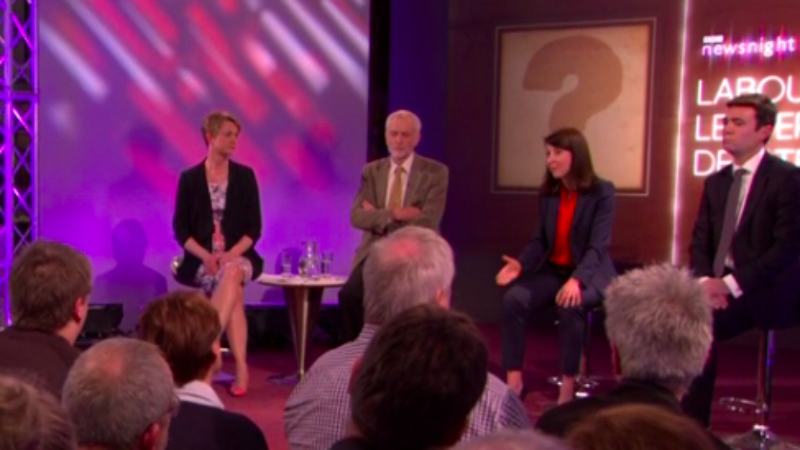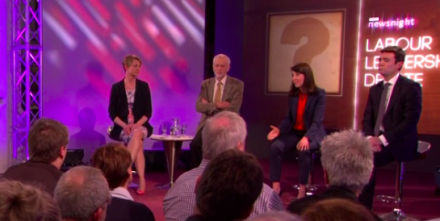

Two years on from the election of Jeremy Corbyn as leader of the Labour Party, the nature of the project is widely misunderstood.
Opponents portray him as a throwback to the 1970s, or, worse still, as an attempt to impose Venezuelan economics on Britain.
Some supporters, on the other hand, see his leadership as the deliverance of a socialist paradise. Instead, Corbyn is doing for the left of the Labour Party what Blair did for its right – modernising the Labour left by shedding the movement of its irrelevant, unworkable dogma while retaining its underlying principles.
After the second world war, Labour’s left and right were held together by a joint vision of Keynesian economics combined with nationalisation, and redistribution via an expanding welfare state. As globalisation accelerated, and the British economy became more sensitive to events in the world economy, this post-war consensus combusted under the Labour governments of the 1970s with sky-high inflation together with increasing unemployment and government debt. This forced both the left and right of the party to search for new solutions in an age of globally connected markets.
As Michael Foot gained control of the leadership, the left sought refuge in the nation state. Tony Benn’s “alternative economic strategy”, which promised nationalisation of Britain’s biggest companies together with a much greater role for government in directing the private enterprise left, formed the bedrock of the 1983 manifesto, motivated by the left’s belief in the inefficiency of capitalism.
Its commitment to equality led to pledges to increase government spending via heavier taxes on the income and wealth of the rich. A faith in democracy resulted in the championing of its extension throughout society with ideas of workers’ control. And despite a streak of internationalism, expressed through policies of unilateral disarmament and pacifism, the left’s approach of socialism in one nation led to the one-way street of advocating import controls while promoting British exports.
As a package, this was a disastrous set of policies completely ill-equipped for the modern world. Instead of providing a socialism compatible with globalisation, the left had produced the basis for a siege economy, which would have been ripped apart by the international investors who had found themselves at the helm of an open global marketplace. The result was Thatcherism for the country, as the British public rejected such misplaced radicalism, and the leadership of Neil Kinnock for the Labour Party.
Under Kinnock, and accelerated by Tony Blair, the Labour right modernised its vision of taking the edges off capitalism in an economy increasingly plugged into global finance. This meant lower taxes on the rich and business, to attract and retain international investment and talent; a rejection of Keynesian counter-cyclical spending in favour of balanced budgets; a preference for the market over the state expressed by privatisation and the introduction of market ethics into public services; and the bloating of London’s financial sector, which acted as the engine for this new settlement. The steady growth that resulted helped fund high-quality public services and drastically increased living standards.
However, the financial crisis and its aftermath showed this modernised vision to be built on sand – the bailing out of the banks’ market failure was paid for through austerity for everyone else; the richest thrived while growth for the majority stagnated and public services were cut to the bone. This version of Labour’s right drew its last breath under the cautious policies of Ed Miliband, before the left regained control with the election of Jeremy Corbyn as leader.
Corbyn, although raised on the traditions of Benn’s socialism in one nation, has interestingly rejected the left’s previous solution of a retreat into the nation state in the face of global capital. Instead, Corbyn’s project has sought to produce a socialism at ease with an open world.
A belief in the inefficiency of capitalism remains, but nationalisation is reserved for sectors that tend towards monopoly, and instead a vision of co-operatives and mutuals competing in an open marketplace has taken its place. Greater equality is still important, expressed by higher taxes on the rich and multinationals to fund public services, but within the limits set by a global economy to prevent capital flight and the loss of talented workers.
Internationalism remains a cornerstone, with Corbyn replacing the interventionism of New Labour with a peace-first approach, but this is matched by a renewed commitment to Britain’s nuclear deterrent in a dangerous world. And the answer to the corporate tyranny of companies such as Uber is still to extend democracy to the workplace, which, with the rise of the gig economy, is an idea whose time has clearly come.
In this way Corbyn is the new moderniser in the Labour Party, delivering a vision for Labour’s left of a socialism which is not only workable in a globalised economy, but is, most importantly, electable.




More from LabourList
Almost half of Labour members oppose plans to restrict jury trials, poll finds
‘How Labour can finally fix Britain’s 5G problem’
‘The University of the Air – celebrating 60 years of Harold Wilson and Jennie Lee’s vision’